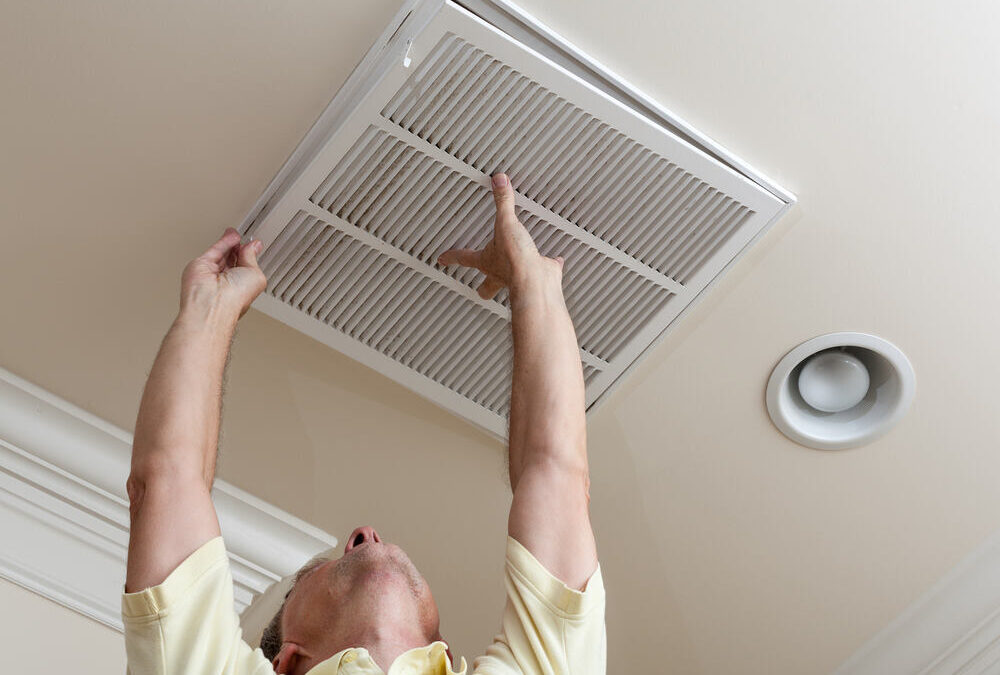Have you ever walked into your home or office and noticed a peculiar smell coming from the air vents? This can be a concerning issue for many homeowners and business owners. A smelly HVAC system can be a nuisance, and understanding the seasonal causes can help you address the problem effectively. In this comprehensive guide, we will explore the various reasons behind a smelly HVAC system and provide solutions to keep your indoor air fresh and clean.

Understanding the Basics of HVAC Systems
Before diving into the seasonal causes of odors, it’s essential to understand what an HVAC system is. HVAC stands for Heating, Ventilation, and Air Conditioning. It is responsible for maintaining the indoor climate by regulating temperature, humidity, and air quality.
A well-functioning HVAC system ensures comfort and health by circulating clean air throughout the building. However, when problems arise, such as unpleasant smells, it can disrupt the environment and cause discomfort.
Common Causes of Smelly HVAC Systems
1. Accumulation of Dust and Debris
Over time, dust and debris can accumulate in the air ducts and filters of your HVAC system. This buildup can lead to a musty odor that spreads throughout your home or office. Regular maintenance and cleaning are crucial to prevent this issue.
2. Mold and Mildew Growth
Moisture is a common problem in HVAC systems, especially if there are leaks or poor drainage. This moisture can create an ideal environment for mold and mildew to grow, resulting in a foul smell. Ensuring proper drainage and regular inspections can help prevent this.
For more information on mold in HVAC systems, you can visit Mold Safe Removal.
3. Dead Animals
In some cases, small animals like rodents can find their way into the ductwork and become trapped. As unfortunate as it is, their presence can lead to unpleasant odors. Regular inspections and sealing entry points can help mitigate this risk.
4. Dirty Air Filters
Air filters are designed to trap dirt, dust, and allergens, but if they become clogged, they can impede airflow and contribute to odors. Replacing air filters regularly is a simple yet effective way to prevent this issue.
Seasonal Causes of Smelly HVAC Systems
1. Spring: Pollen and Allergens
During the spring, pollen counts are high, and allergens can easily enter your HVAC system. These particles can accumulate in the ducts and create an unpleasant smell. Installing high-quality filters and regular cleaning can help combat this problem.
2. Summer: Humidity and Condensation
The summer season brings higher humidity levels, which can lead to excess condensation in your HVAC system. This moisture can foster mold and mildew growth, resulting in musty odors. Regular maintenance and ensuring proper drainage are essential during this time.
3. Fall: Decaying Leaves
As leaves fall from trees, they can find their way into outdoor units and cause blockages. Decaying leaves can emit a foul smell that gets circulated indoors. Clearing debris from outdoor units is a simple preventive measure.
4. Winter: Heating System Issues
In the winter, the heating system is in high demand, and issues such as clogged filters or malfunctioning components can lead to burning smells. Regular maintenance before the winter season can help ensure everything is in working order.
Solutions to Combat Smelly HVAC Systems
1. Regular Maintenance and Cleaning
One of the most effective ways to prevent odors is by scheduling regular maintenance and cleaning for your HVAC system. This includes checking filters, cleaning ducts, and ensuring proper drainage.
2. Install High-Quality Air Filters
Investing in high-quality air filters can make a significant difference in improving air quality and reducing odors. These filters are designed to trap smaller particles and allergens more effectively.
3. Use Dehumidifiers
Dehumidifiers can help control moisture levels in your home or office, reducing the risk of mold and mildew growth. This is particularly useful during humid summer months.
4. Seal Ductwork
Ensuring that your ductwork is properly sealed can prevent outside contaminants from entering the system. This also improves energy efficiency and reduces the risk of odors.
For more tips on preventing odors in ducts, check out our DIY Tips.
Conclusion
A smelly HVAC system can be a source of discomfort and concern for both homeowners and business owners. Understanding the seasonal causes and taking proactive measures can help maintain a fresh and pleasant indoor environment. Regular maintenance, proper cleaning, and addressing specific issues related to each season are key to ensuring your HVAC system functions optimally.
For more information on air quality solutions, visit our Air Quality Solutions page.

Frequently Asked Questions
1. Why does my HVAC system smell musty?
A musty smell in your HVAC system is often due to mold or mildew growth, usually caused by excess moisture or poor drainage. Regular maintenance and cleaning can help prevent this issue.
2. How often should I replace my air filters?
It is recommended to replace air filters every 1 to 3 months, depending on usage and the type of filter. Regular replacement helps maintain good air quality and prevents odors.
3. Can a smelly HVAC system affect my health?
Yes, a smelly HVAC system can affect indoor air quality and potentially impact health, especially for individuals with allergies or respiratory issues. Addressing the root cause of the odor is essential to ensure a healthy environment.
For more details on inspecting your vents, visit our Vent Inspection Guide.
For further reading on resolving HVAC odors, you can explore an external resource at Panasonic.
This article contains affiliate links. We may earn a commission at no extra cost to you.